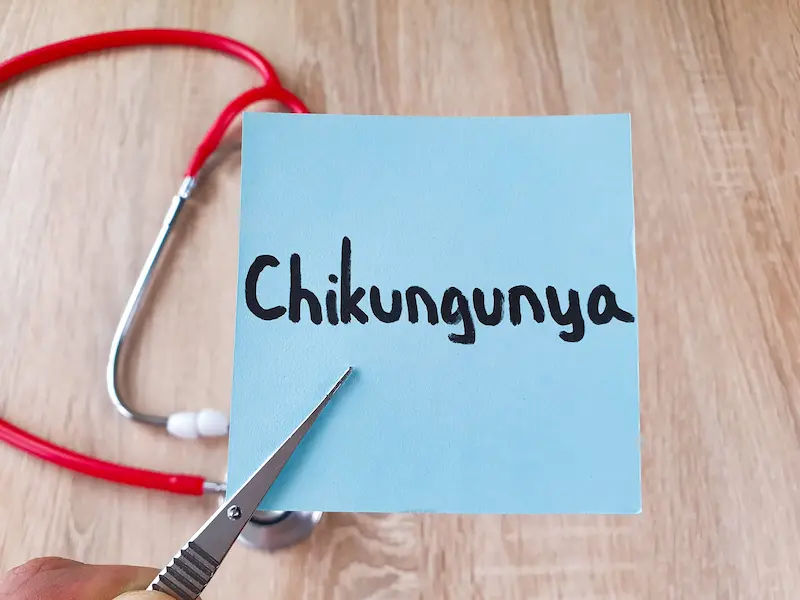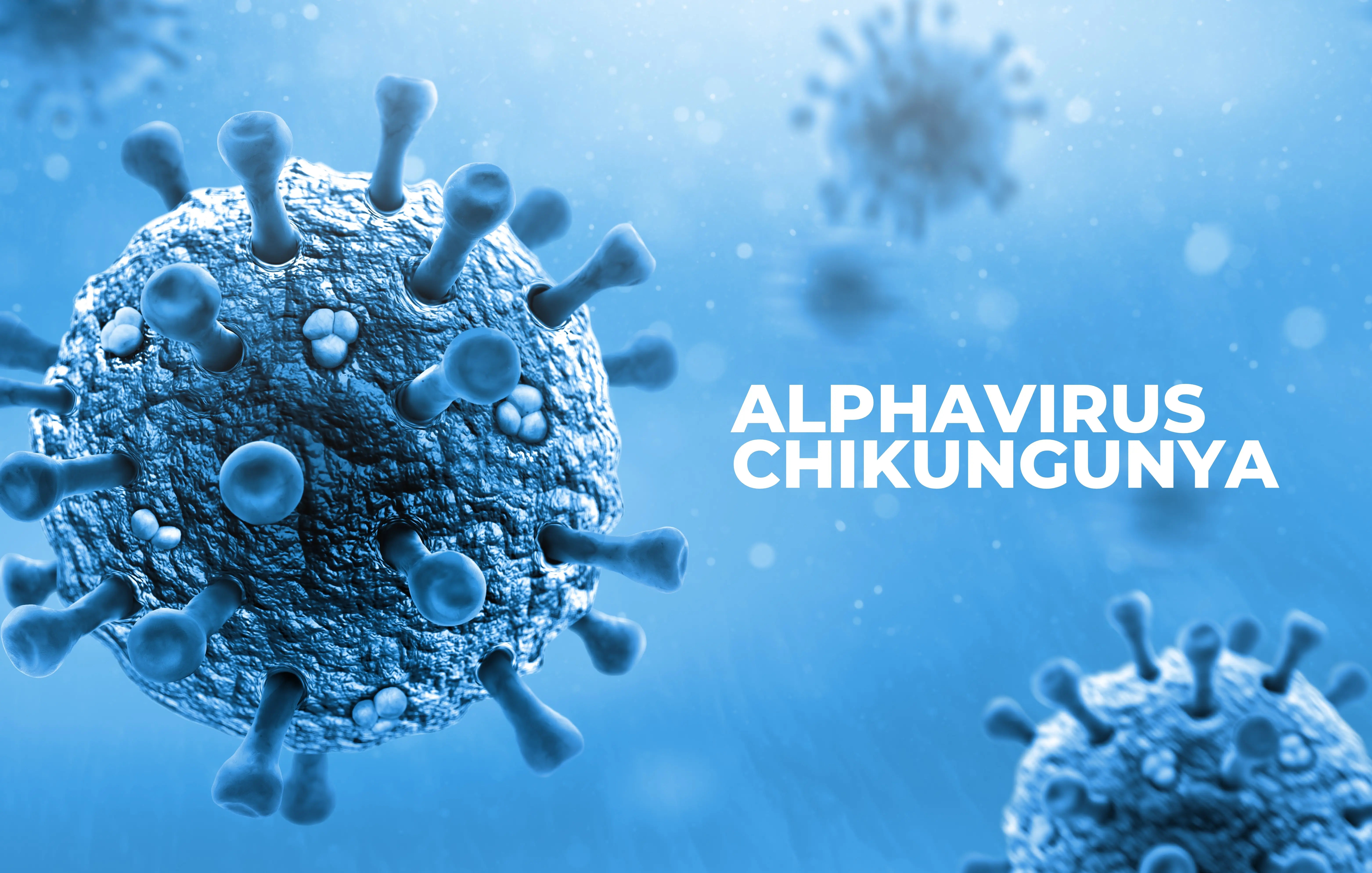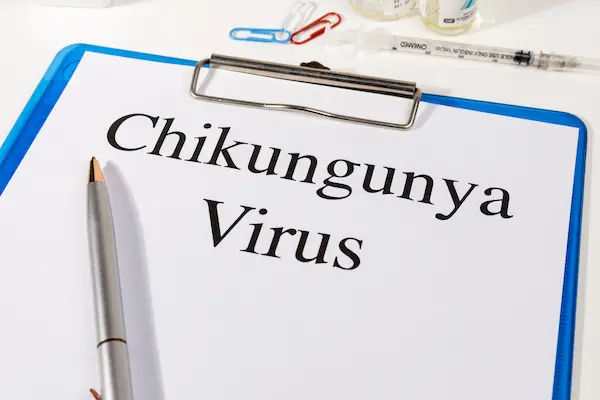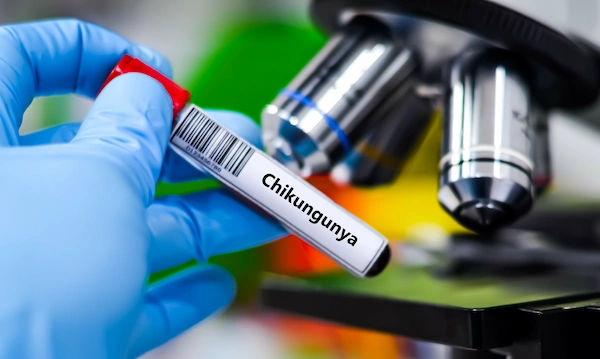Chikungunya Virus Overview: Symptoms and Treatment
Learn about Chikungunya virus, its symptoms, transmission, diagnosis, and treatment options. Discover effective ways to manage joint pain, reduce risks, and prevent mosquito-borne infection.

Written by Dr. Dhankecha Mayank Dineshbhai
Reviewed by Dr. Md Yusuf Shareef MBBS
Last updated on 13th Jan, 2026

Chikungunya is a viral infection transmitted by mosquitoes, primarily the Aedes aegypti and Aedes albopictus species. While it is rarely fatal, it can cause severe joint pain, fever, and fatigue, making daily life uncomfortable for those affected. If you or a loved one is experiencing symptoms of Chikungunya, understanding the condition can help you manage it better and seek timely medical care.
What is Chikungunya?
Chikungunya is caused by the Chikungunya virus (CHIKV), which spreads through mosquito bites. The name "Chikungunya" comes from an African word meaning "to become contorted," referring to the stooped posture caused by severe joint pain. The disease is common in tropical and subtropical regions, including parts of Africa, Asia, and the Americas.
Symptoms of Chikungunya
Symptoms usually appear 3 to 7 days after being bitten by an infected mosquito. The most common signs include:
- High fever (often above 102°F or 39°C)
- Severe joint pain (especially in hands, wrists, ankles, and knees)
- Muscle pain
- Headache
- Fatigue
- Rash (red patches or bumps on the skin)
- Nausea or vomiting
While most people recover within 1 to 2 weeks, some may experience prolonged joint pain and stiffness for months or even years. In rare cases, complications like eye, heart, or neurological problems may occur, especially in older adults or those with weakened immune systems.
How is Chikungunya Transmitted?
Chikungunya spreads when an infected mosquito bites a person. The virus does not spread directly from person to person, but a mosquito can pick up the virus by biting an infected individual and then transmit it to others.
Risk Factors
- Living in or traveling to areas with mosquito outbreaks.
- Lack of mosquito control measures (stagnant water, uncovered containers).
Weakened immune system (elderly, infants, or those with chronic illnesses).
Consult a Specialist for Personalised Advice
Diagnosis and Treatment
Diagnosis
- If you experience symptoms, a doctor may recommend:
- Blood tests (RT-PCR or IgM antibody tests) to confirm the virus.
- Physical examination to rule out similar diseases like dengue or Zika.
Get Your Health Assessed
Treatment
There is no specific antiviral treatment for Chikungunya, but supportive care helps manage symptoms:
- Rest and hydration – Drink plenty of fluids to prevent dehydration.
- Pain relief – Over-the-counter painkillers like acetaminophen (paracetamol) can help with fever and joint pain.
- Avoid NSAIDs (like ibuprofen or aspirin) until dengue is ruled out, as they may increase bleeding risk.
- Cold compresses – Applying ice packs can reduce joint swelling.
- In severe cases, especially with persistent joint pain, doctors may recommend physical therapy or anti-inflammatory medications.
Preventing Chikungunya
Since there is no vaccine available yet, prevention focuses on avoiding mosquito bites:
- Use mosquito repellents (containing DEET, picaridin, or oil of lemon eucalyptus).
- Wear long-sleeved clothing to reduce skin exposure.
- Install window and door screens to keep mosquitoes out.
- Eliminate standing water (mosquitoes breed in stagnant water in pots, tires, or containers).
- Sleep under mosquito nets if living in high-risk areas.
When to See a Doctor?
Seek medical attention if you experience:
- Persistent high fever beyond 3 days.
- Severe joint pain affecting mobility.
- Signs of dehydration (dizziness, dry mouth, reduced urination).
- Unusual bleeding or bruising (to rule out dengue).
If you suspect Chikungunya, you can consult a doctor online or book a lab test through Apollo 24|7 for quick diagnosis and care.
Final Thoughts
Chikungunya can be painful and exhausting, but with proper care, most people recover fully. The key is to stay hydrated, manage symptoms, and prevent mosquito bites. If you live in or travel to mosquito-prone areas, take precautions to protect yourself and your family.
For expert advice or testing, reach out to healthcare professionals who can guide you through recovery!
Consult a Specialist for Personalised Advice
Consult a Specialist for Personalised Advice

Dr Syed Mateen Pasha
General Physician
2 Years • MBBS
Bengaluru
PRESTIGE SHANTHINIKETAN - SOCIETY CLINIC, Bengaluru

Dr. Vivek D
General Physician
4 Years • MBBS
Bengaluru
PRESTIGE SHANTHINIKETAN - SOCIETY CLINIC, Bengaluru

Dr. Syed Ismail Ali
General Practitioner
7 Years • MBBS
Hyderabad
Apollo 24|7 Clinic, Hyderabad

Dr. Harshendra Jaiswal
General Physician/ Internal Medicine Specialist
12 Years • MBBS , MD (General medicine)
Kolkata
108 DHANA DHANVANTARI Clinic, Kolkata
(25+ Patients)
Dr. Thandra Ramoji Babu
General Physician/ Internal Medicine Specialist
5 Years • MBBS, DNB(General Medicine)
Warangal
Sai Ram multi-specialty hospital, Warangal
Consult a Specialist for Personalised Advice

Dr Syed Mateen Pasha
General Physician
2 Years • MBBS
Bengaluru
PRESTIGE SHANTHINIKETAN - SOCIETY CLINIC, Bengaluru

Dr. Vivek D
General Physician
4 Years • MBBS
Bengaluru
PRESTIGE SHANTHINIKETAN - SOCIETY CLINIC, Bengaluru

Dr. Syed Ismail Ali
General Practitioner
7 Years • MBBS
Hyderabad
Apollo 24|7 Clinic, Hyderabad

Dr. Harshendra Jaiswal
General Physician/ Internal Medicine Specialist
12 Years • MBBS , MD (General medicine)
Kolkata
108 DHANA DHANVANTARI Clinic, Kolkata
(25+ Patients)
Dr. Thandra Ramoji Babu
General Physician/ Internal Medicine Specialist
5 Years • MBBS, DNB(General Medicine)
Warangal
Sai Ram multi-specialty hospital, Warangal




